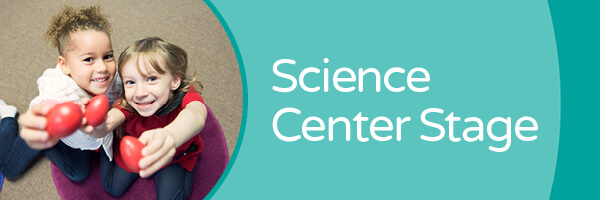[vc_row][vc_column][vc_column_text]Some kids are naturals, born for the stage. You’ve seen them before. Little or no training and singing and dancing like pros. For some, performing does not come that easy, if they can do it all. I know a student that struggled to find his place not only in the music room, but in any room. His story can be an inspiration to us all.[/vc_column_text][vc_separator][/vc_column][/vc_row][vc_row][vc_column][vc_column_text]I met Matthew 4 years ago when he was a 2nd grade student. Frequently during music class, he would hide behind the other kids, in the back of classroom, often too self-conscious to participate in the lesson. He once ran out of the room crying because he thought the other kids were looking at him and saying he wasn’t doing things right. When it was time to play recorder in 3rd grade, Matthew drew on his papers instead of playing. Even when I encouraged him to stay after class to play when no one else was watching, he declined saying he couldn’t do it. During 4th grade, which was a very difficult year for Matthew, he was diagnosed with Autism. This explained a lot of his behaviors, but did not solve them. Through a carefully thought out plan for behavior and academics, Matthew slowly began to show improvements. Although his work was steadily improving, Matthew struggled to find his place among his peers. Because of his frequent outbursts, name calling, and accusations of wrongdoing that are part of his disability, Matthew struggled to be recognized as a friend by his classmates.
This year, Matthew is in 5th grade. At the start of the year, he signed up for chorus. While I knew Matthew to be a good singer, I wondered how he would handle the large number of students in the group (62) in our small music room. More than half of the students he didn’t know at all because they were in 6th grade. Not only did he sit in the front row for every rehearsal, he seemed to thrive as we sang together. He was finding a place. [/vc_column_text][/vc_column][/vc_row][vc_row][vc_column][vc_column_text]In January, our school was mounting our first ever musical production. While Matthew didn’t audition, he was very interested in coming to see the show, Schoolhouse Rock LIVE! Jr. in February. While eating lunch one day, I mentioned to my fellow specialists that I needed some planet artwork for the song ‘Interplanet Janet’. The art teacher said she knew just who I should ask…Matthew! As often happens to children on the autism spectrum, they find one specific thing and focus on it. Matthew had an fascination with all things related to the solar system, and he was GREAT at drawing the planets! I bought some poster board and went to ask Matthew for a favor. When I told him I needed him to draw the planets so we could use them in our show, he started shaking and crying he was so excited. I then took him to the art teacher, who gave him some of her “special” markers and pencils to use for the project. She let him keep them when he was done. For the next few days, Matthew kept showing up at my door to deliver the most recently completed planet and to get the next poster board. He was beaming every time I saw him!
We performed our musical two nights for the public and in two assemblies for the students of our school. When Matthew attended his assembly, we were anxious to see his reaction to his planets. When we got to ‘Interplanet Janet’ and his planets were up for all to see, he could not contain his excitement. He was crying, smiling, shaking, and saying, ‘This is best day of my whole life. Everyone can see my planets. This is my dream come true’. Needless to say, we were all crying too.
The planets were then displayed in the hallway and when I recently took them down, I gave them to Matthew. I’m sure they are now hanging in his room as a reminder that he was ‘part of the show’. [/vc_column_text][vc_separator][vc_column_text]Jane Boyle is a 22 year veteran music educator who has taught in New York, Hawai’i, California, Indiana, New Jersey, and Pennsylvania. Countless students have passed through her classrooms of the years and have experienced her complete dedication to their musical growth. She resides in Western Pennsylvania with her husband, Dr. Mark A. Boyle, and their two boys, Nathan (a trombonist) and Patrick (a singer). Oh…there’s also two cats, Orpheus and Mimi, and a dog, Skylar. [/vc_column_text][vc_column_text]

[/vc_column_text][/vc_column][/vc_row]





 With a large number of dual-income families, the school day often extends to after school programs. However, for children with special needs, such as Autism Spectrum Disorder, the options for a quality after school program curriculum are limited. As published in the
With a large number of dual-income families, the school day often extends to after school programs. However, for children with special needs, such as Autism Spectrum Disorder, the options for a quality after school program curriculum are limited. As published in the ![KindermusikPresents_ABCMusicAndMe_AGlobalEarlyChildhoodCurriculum[1]](https://media2.kindermusik.com/website/sites/2/2014/05/KindermusikPresents_ABCMusicAndMe_AGlobalEarlyChildhoodCurriculum1-300x167.png)